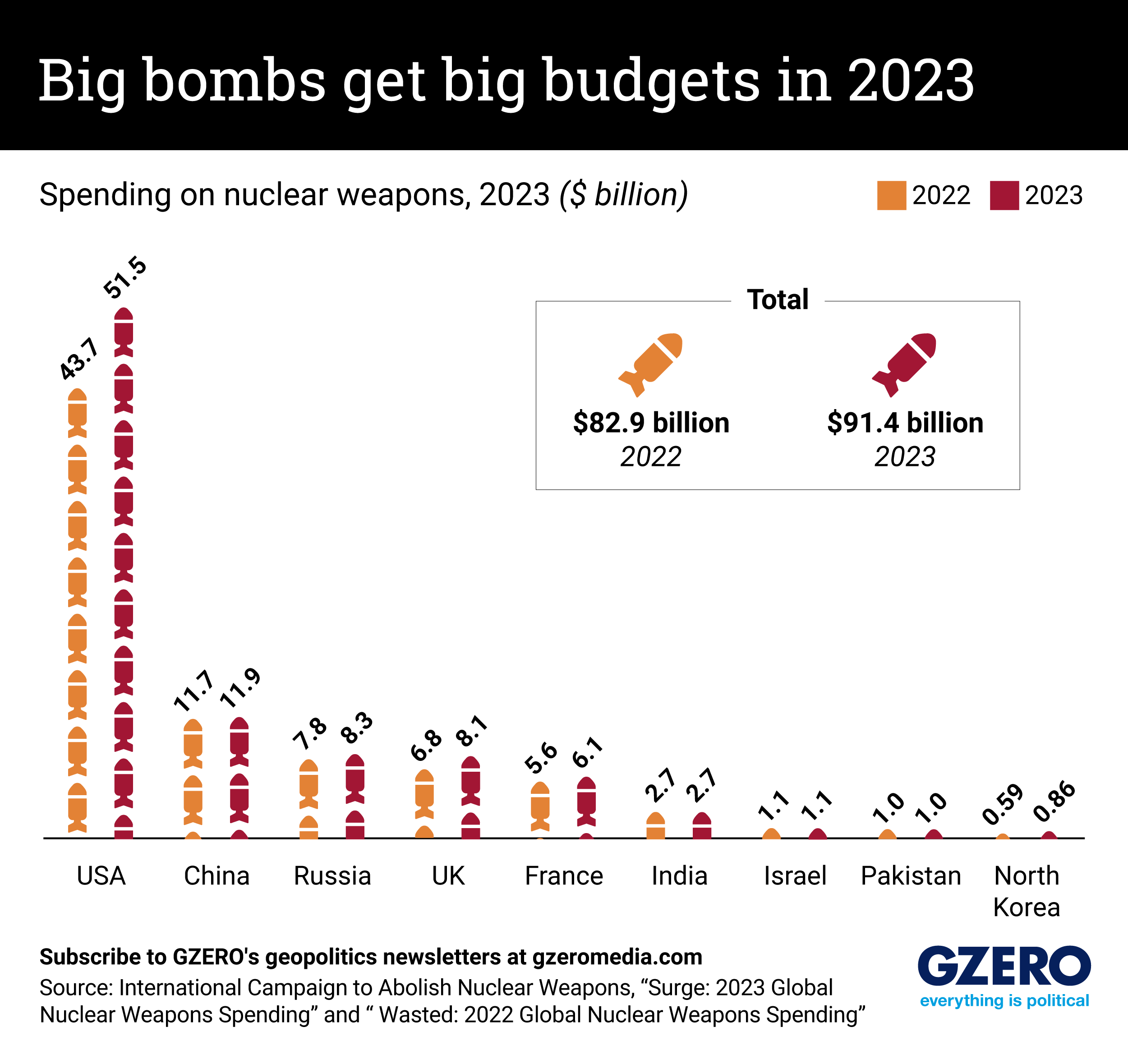June 23, 2024
The world’s nuclear powers increased their spending on these apocalyptic weapons by a record 13% between 2022 and 2023, according to the International Campaign to Abolish Nuclear Weapons. Cumulatively, they spent a cool $91.4 billion on building, maintaining, and researching nuclear weapons.
Well over half of that spending came from the United States, to the tune of $51 billion. The next highest spenders were China and Russia, with comparatively frugal expenditures of $11 billion and $8 billion, respectively. The increases were not driven by building new weapons — arsenal levels remained fairly stable, according to a different study by the Stockholm International Peace Research Institute — but instead by developing new technology to target and launch the weapons.
The US and UK, which saw the largest increases in nuclear spending, are developing new rockets and submarines that they hope will help deter attacks. The US, UK, Russia, China, France, India, and North Korea are also reportedly developing so-called hypersonic missiles, which can travel over five times the speed of sound to avoid interception.
That amount of spending comes to $2,898 every second — roughly what the average global household makes in three months. As if spending vast amounts on weapons that could effectively end the world in about two hours wasn't tragic enough, in countries like North Korea and Pakistan, endemic poverty and economic stagnation mean every dollar spent on nukes is one less spent on food, fuel, and medicine.
More For You
- YouTube
How widely is AI actually being used, and where is adoption falling behind? Speaking at the 2026 World Economic Forum in Davos, Brad Smith, Vice Chair and President of Microsoft, outlined how AI adoption can be measured through what he calls a “diffusion index.”
Most Popular
- YouTube
AI adoption is accelerating worldwide, but “diffusion” isn’t just about who has the best models. It’s about who has the basics: affordable power, reliable connectivity, and the skills to actually use AI. In a new GZERO Media Global Stage livestream from the 2026 World Economic Forum in Davos, Switzerland, CNN’s Richard Quest moderates a clear-eyed discussion on what it will take to broaden AI access, and what happens if the gap widens.
- YouTube
Now that we are all on same page. #PUPPETREGIME
© 2025 GZERO Media. All Rights Reserved | A Eurasia Group media company.
